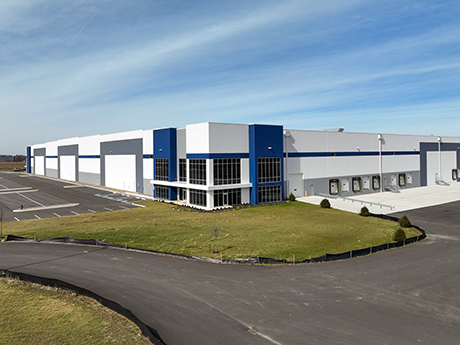By David Stecker, JLL
As advanced manufacturing reshapes industrial real estate across the Midwest, Cleveland is emerging as a quietly powerful hub — offering scalable space, a strategic location and infrastructure ideal for high-growth sectors. While other Midwest metros have gained national attention for headline-grabbing investments, Cleveland is carving out its own unique path to growth, supported by advanced industries, a skilled workforce and a strong real estate foundation.
The region’s industrial market remains competitive and resilient, even amid broader economic headwinds. Despite the recent move-out of Joann Fabric’s 1.4 million-square-foot facility in Summit County, overall fundamentals remain healthy, and Class A space is in especially high demand.

For high-tech and manufacturing users seeking logistics-ready facilities in a cost-effective market, Cleveland delivers — offering the right mix of space, speed and strategic location that today’s industrial users are actively pursuing.
A market of opportunity
According to JLL’s second-quarter 2025 Cleveland Industrial Insights Report, total vacancy in the market sat at 3.8 percent. While this represents a slight uptick following Joann’s exit, it still signals robust market health. Class A availability is especially tight, driven by a wave of large leases signed in newly developed properties. That momentum is putting upward pressure on rents, while also signaling a clear appetite for high-quality space and little hesitation from tenants ready to act when the right product becomes available.
One of the most notable transactions this year was Piping Rock Health Products’ 408,767-square-foot lease at Turnpike Commerce Center, a 1 million-square-foot building. This transaction marks Cleveland’s largest industrial lease in more than two years. Similarly, Blaster Products committed to a 308,996-square-foot build-to-suit at Westfield Commerce Park — another Class A transaction signaling tenant preference for location, efficiency and logistics access.
Both transactions, supported by JLL, underscore more than just the scarcity of Class A space; they reinforce Cleveland’s strength as a market where well-located industrial product is quickly absorbed. This leasing momentum is being fueled by advanced manufacturing users whose needs go beyond square footage, as they demand infrastructure that supports automation, power-intensive operations and workforce accessibility.
Cleveland is rising to meet that need, and its ability to accommodate these evolving user profiles is becoming a clear competitive advantage.
Affordability advantage
Affordability continues to be a key differentiator for Midwest metros, and Cleveland stands out. The region offers significant cost advantages for both residents and employers, making it an attractive location for industrial users focused on operational efficiency. These cost savings not only help reduce bottom-line expenses but also play a critical role in attracting and retaining talent in a tight labor market.
For companies balancing workforce needs with the rising costs of doing business elsewhere, Cleveland provides a strategic alternative that doesn’t sacrifice access, quality or scalability.
Advanced manufacturing
Cleveland is increasingly viewed as a strategic player in the Midwest’s transition to advanced industry. According to JLL research, Ohio has attracted more than $25 billion in manufacturing investments across the state, spanning sectors such as electric vehicles, semiconductors, aerospace and life sciences. Among them is the recent completion of Viega’s $200 million, 220,000-square-foot manufacturing facility in Shalersville, Ohio.
Additionally, Ohio ranks as the No. 2 best state in the U.S. to start a business in 2025, further signaling its momentum and business-friendly climate.
Cleveland, in particular, is well positioned to support this growth. From battery components and materials science to energy-intensive production, the market offers:
• Robust infrastructure
• Reliable utility capacity
• Multimodal logistics connectivity
• A skilled labor pool
Within a day’s drive of more than half of the U.S. population, its central location makes Cleveland a natural choice for companies looking to build resilient, responsive supply chains. These advantages are especially valuable as more manufacturers pursue reshoring and nearshoring strategies.
The outlook
Cleveland’s industrial market may not always command the spotlight, but its story is one of substance, strength and strategic value. The market has posted 270,000 square feet of positive net absorption year to date, excluding Joann’s exit, and continues to show a healthy balance of demand and supply.
With its affordability, infrastructure, workforce and proven leasing velocity, Cleveland delivers the practical advantages and forward-looking positioning that today’s industrial users demand. As manufacturing continues to evolve, this market is ready and able to support what’s next.
David Stecker is a managing director with JLL. This article originally appeared in the August 2025 issue of Heartland Real Estate Business magazine.


